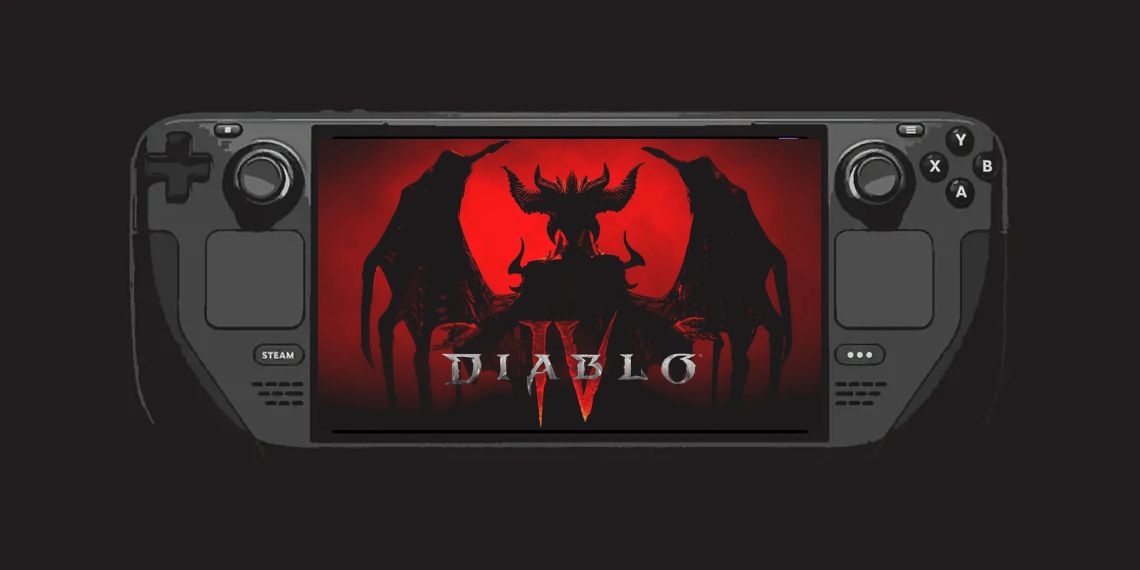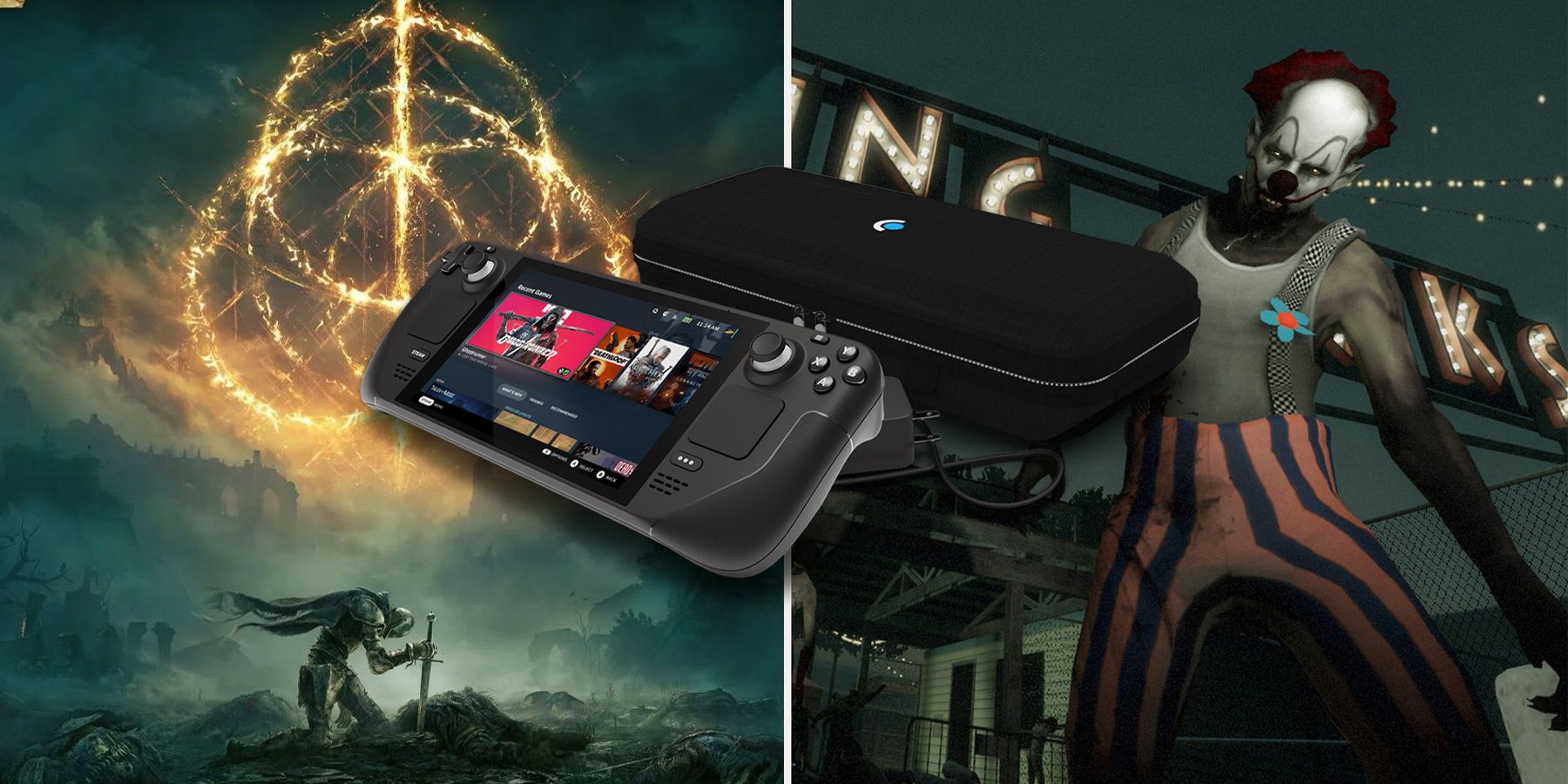
A Glimpse Into the Promising Future of Portable PC Gaming

The surge of PC gaming handhelds in 2023 proves they are increasingly popular and set to revolutionize the gaming industry, overshadowing the previous year's success of the Steam Deck
Valve revolutionized PC gaming last year with the introduction of the Steam Deck, a portable PC gaming platform that quickly became the go-to recommendation for high-quality gaming on the go. The timing of its release, following the Nintendo Switch's OLED upgrade, solidified its position as a leader in the market. The Steam Deck's success has sparked competition, with companies like Asus and Lenovo launching their own gaming handhelds in 2023. This surge in competition demonstrates the industry's hunger for new, innovative devices, providing consumers with a wider array of options to choose from.
The Asus ROG Ally quickly cemented itself as the most formidable competitor to the Steam Deck, offering two variants to choose from: the ROG Ally Z1 Extreme and the standard ROG Ally Z1. Boasting several improvements over Valve's initial effort, along with a competitive price, it has caught the eye of consumers and offers an option for regions not serviced by Valve. The variable refresh rate 1080p display is a highlight, providing a sharp image and superior responsiveness across a range of games. The more powerful Z1 Extreme version also delivers enhanced performance, although at the cost of battery life. Despite some quality assurance issues and software integration snafus, the ROG Ally has earned a strong reputation, even with hardware issues in its memory card slot causing frustration for some customers.
The Lenovo Legion Go is the latest addition to this trio of devices (sort of-- we’ll elaborate on that in a moment) and shares many similarities with the Asus ROG Ally. Both devices utilize the same AMD Ryzen Extreme Z1 processor in their high-end SKUs, both run on Windows, and debut at a starting price of $699. However, the Legion Go boasts over 20% more battery capacity and a considerably larger display with a native 1600p resolution on an 8.8-inch panel. Where the Legion Go stands out is in its detachable left and right sides, similar to the Nintendo Switch, in an attempt to provide a unique way of playing. This experimental approach is indicative of a new trend in the PC space, with manufacturers employing similar components in innovative ways to cater to the growing demand for the best portable PC gaming experience.
Lenovo sees the battle between hardware and software as won, while Valve focuses on the software side. Both the ROG Ally and Legion Go run Windows, offering compatibility with standard game launchers and access to Xbox Game Pass. However, the Windows experience on these devices is not seamless, and setting up and navigating them can be a pain. Valve's Steam Deck, on the other hand, integrates custom SteamOS into an existing Linux distributable, providing a handcrafted user experience. Initially, there were limitations with game support, but this has drastically improved over time. Valve continues to release updates that enhance stability and add new features. The Steam Deck remains an ideal choice for those seeking a portable PC console and for users who like to tinker.
Valve recently surprised users with an update to the Steam Deck, introducing new models with improved OLED displays, thinner bezels, and a 1TB version. While maintaining similar pricing to the original release, Valve lowered the price of the models. They also improved battery life, upgraded the Wi-Fi chip, and enhanced integration with Steam. Even though performance remains unchanged, these updates make the Steam Deck a strong contender despite competition from other devices.
Valve has confirmed their commitment to the Steam Deck, indicating that a new, more powerful successor is still a few years away. However, other manufacturers such as AMD, Asus, Lenovo, and potentially others are likely to innovate on their mobile chips, posing new competition for Valve. The Nintendo Switch successor, expected to launch in 2024, is also anticipated to improve its visual fidelity and strengthen its exclusive game library as it competes with more powerful portable PCs. Despite being overshadowed by these devices, the affordability and unique offerings of the Switch have kept it relevant in the market.
Whether you're a die-hard Nintendo fan or a dedicated PC gamer (or lucky enough to enjoy both), it's clear that the demand for portable gaming isn't going away anytime soon. Fortunately, this has led to an exciting hardware race with various companies stepping up to meet the demand. This competition not only brings us innovative and captivating gaming devices, but also competitive prices that benefit consumers. Let's make the most of it while it lasts.
Editor's P/S
As a hard fan of PC gaming, I am thrilled to witness the rapid advancements and growing popularity of portable PC gaming handhelds. The introduction of the Steam Deck last year marked a significant milestone, revolutionizing the way we experience high-quality gaming on the go. The surge of competition in 2023, with the likes of Asus and Lenovo launching their own gaming handhelds, further solidifies the potential of this market and provides consumers with exciting new options.
The Asus ROG Ally and Lenovo Legion Go have emerged as formidable contenders to the Steam Deck, offering unique features and competitive specifications. The ROG Ally's variable refresh rate display and powerful performance, coupled with its competitive price, make it an attractive choice for gamers. On the other hand, the Legion Go stands out with its detachable left and right sides, larger display, and impressive battery capacity. Both devices run on Windows, providing compatibility with a wide range of games, but the user experience can be less seamless compared to the Steam Deck's custom SteamOS.













